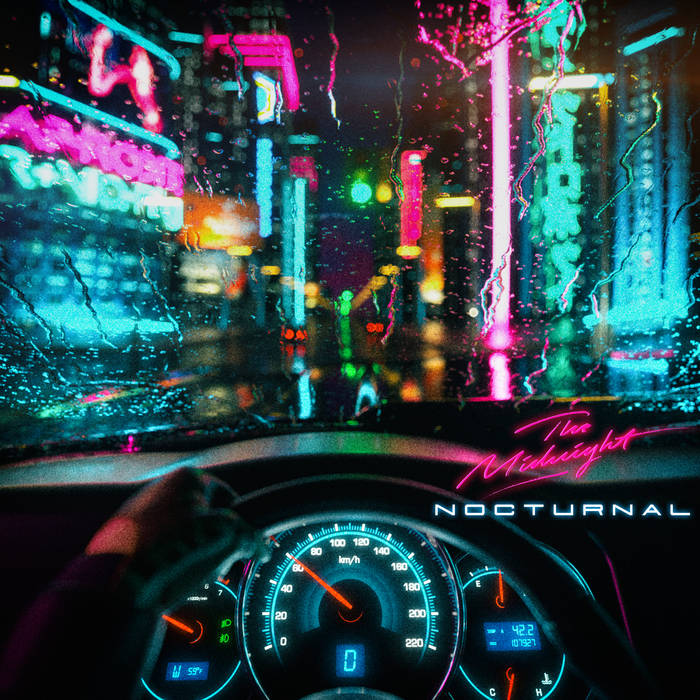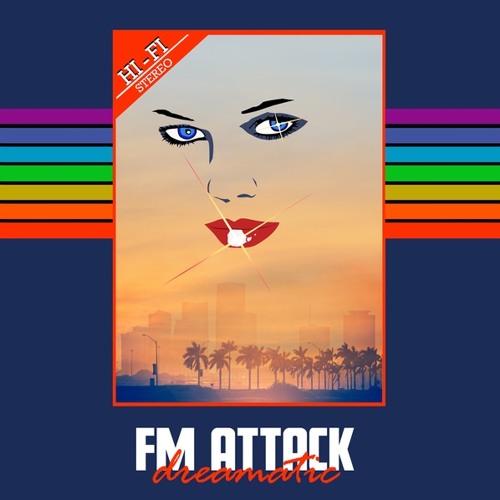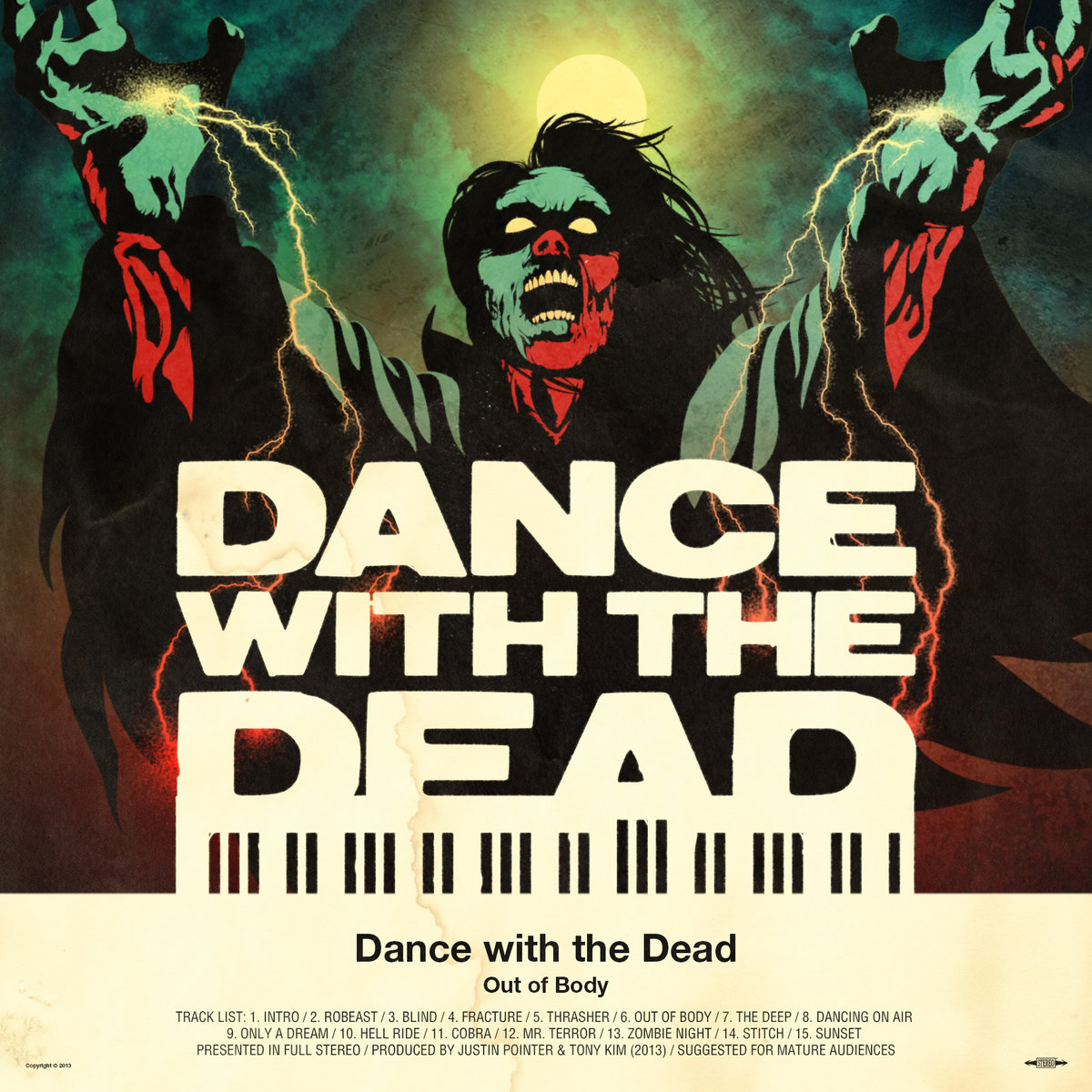 |
| My current favorite RetroWave album |
RetroWave, also known as Synthwave, Dreamwave, Vaporwave, Darkwave, NewRetroWave, in turn and simultaneously, is a style of music in the vein of synth music from the 1980s created to recapture an abandoned musical styling. For simplicity's sake I'm going to just call it RetroWave here.
This genre unofficially started in the '00s mostly as random guys joking around and making ironic video game style music. Most of these songs and pieces can still be found, but are more or less faux-retro and almost pisstakes. The style morphed by the early '10s into a full fledged genre by people who legitimately love and enjoy the music they are making.
It's now a large underground scene of its own.
For the last few years I have found myself listening to more and more of this music. I'm not entirely sure why that is.
Growing up I've never particularly liked synth music, especially from the '80s. It always came across as cheesy and fairly shallow compared to the "deep" rock music I listened to. I enjoyed video game music from the era as it tried to imitate pop music and thus had to make itself catchy to stand out, but film and TV music rarely ever hooked me outside a random TV theme here and there. It was just standard music.
But at the same time, the style just sort of died out with the '80s. Now you are lucky to find a film theme with any sort of power or hooks that will stick with you. It did make me go back and appreciate the material from my youth and before that. I do have more of an appreciation for this style of music, despite it being absent from the mainstream since the early '90s. And that is a shame for a lot of reasons, mainly that the 1980s was the last era to have a distinctive character.
I grew up mainly in the 1990s, but it wasn't as great a time as nostalgia would have you believe. Most of what was great was bleed-over from the '80s in the first half of the decade. By 1997 there was nothing left except hollow corporate mandated pop, loud empty cartoons, unmemorable films, and snarky miserable television shows. It's a lot like now, actually. Only video games appeared to improve at all beyond the '90s. Everything else went stagnant. There isn't much of anything exclusive to that era of the late '90s that isn't still around in some distorted and perverted form.
But RetroWave is different. The genre formed as a bit of an attempt to mine the past for ideas--old video games, films, pop, and television, from the '80s. All things that were left abandoned by about 1993, and completely gone by '96. This music is an attempt to pick up the pieces.
What the artists did was take something that was abandoned and continued the tradition from where it left off. As I have been saying for the entire existence of this blog, I believe that is they key to art and entertainment. It is about connecting with those who came before and continuing on by keeping what we have learned close to our chest. It's carrying on meaningful tradition.
And music is no different.
Or, at least, it used to be. Listen to anything on the radio now and it only goes back to 1998, the single worst year in pop music history up to that point. Once the record companies seized the airwaves with their manufactured idols, songs, personalities, and hype, talent no longer became necessary. Why do you need to sing when computers can do it for you? Why do you need to write songs when the company will tell you what to say by paying other people to churn them out? Why connect with normal people when you're a star, and above them? All you need to do is sit back and let the money roll in.
Nobody listens to pop music anymore and for good reason. But, under the surface of this terrible musical era, there are movements like RetroWave dedicated to continuing traditions the mainstream deliberately threw away.
This is to our benefit that we get music like this now.
It's funny that someone like me who never really liked that music can get so into this style. It might be because RetroWave is not about simply imitating what came before, but encapsulating everything about a certain era into one genre of music and taking it to the present. You will see influences from old video games to television to pop to rock to rap to electronic to movies to even foreign music as well as atmosphere of the time and places all rolled into one thing. It's a celebration an a continuation of a tradition that was left behind.
There are no artists doing this in other genres, or mediums, short of the Pulp Revolution and Superversive for literature.
But it goes beyond nostalgia.
The artists aren't content with simply reliving the past by mindlessly rehashing dusty, wellworn tropes in the same ways. They're perfectly fine with expanding upon the old styles, creating new sounds, and writing original songs that expound upon the old template.
What emerged from them is a whole new style of music with a very rabid fanbase. RetroWave is unlike any musical movement I've seen pop up in ages since at least the swing and ska movements in the '90s. There is real passion here.
It's about more than nostalgia and reliving a dead era, and more about connecting with the past to move forward as one. It's about connecting. This is what culture is all about.
Where else can you find a group that specializes in forgotten J-Pop from the height of anime popularity?
And I guess that's why I'm a fan. There's a genuine joy and sense of fun that comes from this genre that just isn't available anywhere else on the landscape right now. Rock is dead and up its own rear, alternative OD'd on itself, punk is virtue-signalling blandness, rap has been dead since gangsta crap sucked the fun out, and the mainstream is still pretending that recycling two decade old bubblegum is exciting and edgy. As far as music scenes go, this is the only one that sounds as vital and fresh as it does inviting.
It helps that there is no real way for this genre to "sell out" and cash-in on some trend, because it just isn't built for it. There's no way to appeal to a broader audience because the genre is specifically built to cater to those who want what was already abandoned by the mainstream. You can't sell out to a group of people who want nothing to do with you.
Sure, it could get popular, but it cannot shed its roots to do so. This isn't pop punk. Its roots are all that keep it firmly planted in the tradition that its audience built. If you take that away, it just becomes standard electronic music. It becomes another genre completely.
RetroWave is what it is, popular or not.
Like genre fiction and pulp, this music thrives because it has not been dislodged from its roots. Nobody is going to come around and push these groups into betraying their core identity in order to dumb down the sound for Normie Joe or appeal to a "smarter" audience of the 1% of the 1%. There's no "mutation or death" scenario coming for this genre that will eventually lead to its downfall. This is because it was already built with the knowledge that the "mutations" already exist: they are the mainstream and not what these artists, or their audience, wants. Snake oil salesmen can't sell to those who know what their game.
The audience wants a soundscape and atmosphere that could only be captured by operating a certain way that these artists provide. If you strip the songwriting, synths, guitars, saxophones, and effects away, you're left with modern, characterless dance music that you can get anywhere else. If only one piece of the puzzle is removed, the picture is completely lost.
The formula must remain for it to survive.
There's a lot we can learn from RetroWave whether you are in the music arena or not. Sticking to your roots, giving your audience what they want, and having fun doing it, is the way to go. Its a lesson the rest of the music industry has apparently lost, and one other industries need to relearn. Although it would be nice if we could stick to one genre name.
No one knows exactly how long RetroWave will be around for but the music has definitely made its mark and the genre has well established itself and satisfied its audience. And at the end of the day, that's all that matters.
This is hopefully a sign of things to come in the wider world, and becomes the wave of the future.
 |
| My first RetroWave album |





